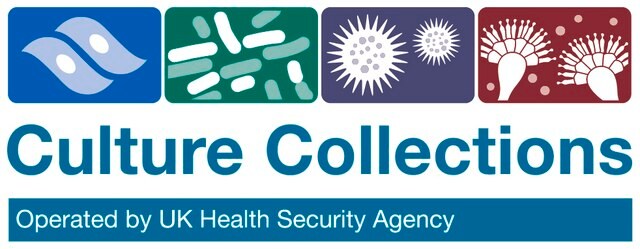OE19 Cell Line human
96071721
Synonyme(s) :
JROECL19, JROECL19 Cells, OE-19 Cells, OEC19 Cells
Se connecterpour consulter vos tarifs contractuels et ceux de votre entreprise/organisme
About This Item
Code UNSPSC :
41106514
Produits recommandés
Source biologique
human esophagus
Mode de croissance
Adherent
Caryotype
Aneuploid
Morphologie
Epithelial
Produits
Not specified
Récepteurs
MHC class I
Technique(s)
cell culture | mammalian: suitable
Maladie(s) pertinente(s)
cancer
Conditions d'expédition
dry ice
Température de stockage
−196°C
Catégories apparentées
Origine de la lignée cellulaire
Human Caucasian oesophageal carcinoma
Description de la lignée cellulaire
The cell line OE19, also known as JROECL19, was established in 1993 from an adenocarcinoma of gastric cardia/oesophageal gastric junction of a 72 year old male patient. The tumour was identified as pathological stage III (UICC) and showed moderate differentiation. The cell line OE19 expresses HLA-A, -B and -C antigens (MHC class I) constitutively. Treatment with interferon-gamma induced the expression of ICAM-1 (CD54). Expression of HLA-DR (MHC class II) on interferon-gamma addition was only measured in a sub-population of OE19. The cells express epithelial cytokeratins and are tumourigenic in nude mice.The Y chromosome could not be detected in this cell line by short tandem repeat (STR)-PCR analysis when tested at ECACC. It is a known phenomenon that due to the increased genetic instability of cancer cell lines the Y chromosome can be rearranged or lost resulting in lack of detection. The cell line is identical to the source provided by the depositor based on the STR-PCR analysis.
Application
OE19 cell line has been used to study the effect of microRNA-MiR-193b on autophagy and cell death on these cells. It has also been used to study microRNA-330-5p as a modulator of neoadjuvant chemoradiotherapy sensitivity.
Study of oesophageal cancer
Profil d'ADN
STR-PCR Data:
Amelogenin: X
CSF1PO: 11,13
D13S317: 9,11
D16S539: 12,13
D5S818: 11,14
D7S820: 8
THO1: 8,9
TPOX: 8
vWA: 16,17
Amelogenin: X
CSF1PO: 11,13
D13S317: 9,11
D16S539: 12,13
D5S818: 11,14
D7S820: 8
THO1: 8,9
TPOX: 8
vWA: 16,17
Milieu de culture
RPMI 1640 + 2 mM Glutamine + 10% Fetal Bovine Serum (FBS).
Procédure de repiquage
Split sub-confluent cultures (70-80%) 1:8, i.e., seeding at 1x10,000 cells/cm2 using 0.25% trypsin or trypsin/EDTA; 5% CO2; 37 °C. These cells grow slowly in islands and when resuscitated from frozen it can take up to 7 days to reach 70% confluence.
Autres remarques
Additional freight & handling charges may be applicable for Asia-Pacific shipments. Please check with your local Customer Service representative for more information.
Certificats d'analyse (COA)
Recherchez un Certificats d'analyse (COA) en saisissant le numéro de lot du produit. Les numéros de lot figurent sur l'étiquette du produit après les mots "Lot" ou "Batch".
Déjà en possession de ce produit ?
Retrouvez la documentation relative aux produits que vous avez récemment achetés dans la Bibliothèque de documents.
Notre équipe de scientifiques dispose d'une expérience dans tous les secteurs de la recherche, notamment en sciences de la vie, science des matériaux, synthèse chimique, chromatographie, analyse et dans de nombreux autres domaines..
Contacter notre Service technique




